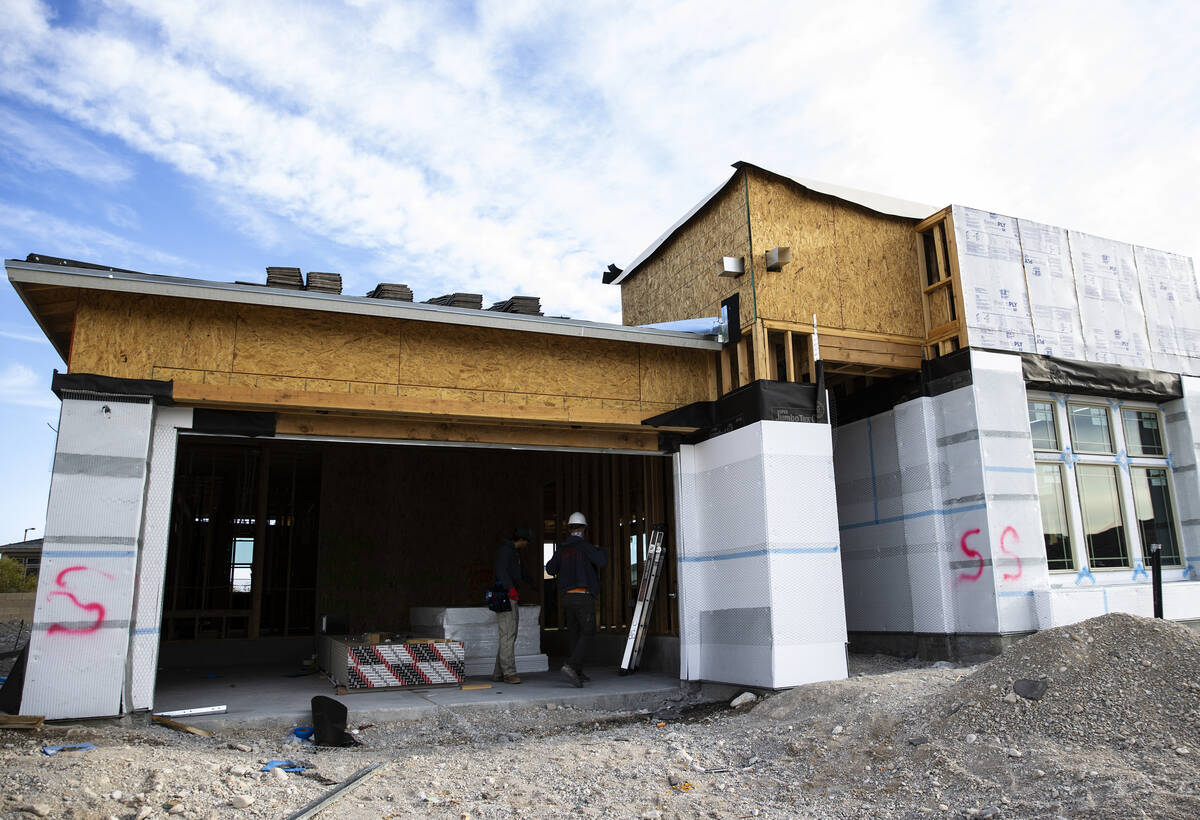VICTOR JOECKS: Las Vegas is in a housing bubble
The last time Las Vegas had a major housing bubble, things didn’t end well. Here’s hoping it ends differently this time.
It’s not fun to think about, but there are many signs that current Las Vegas housing prices aren’t sustainable. Last year, prices soared 26 percent. The median cost of a single-family home jumped from $345,000 in January 2021 to $435,000 last month. Before the bubble burst in the mid-2000s, Las Vegas housing prices peaked at $315,000. After adjusting for inflation, that amount is roughly $436,000. Uh oh.
It would be one thing if this 26 percent spike happened when prices were near record lows. In January 2013, prices jumped 27 percent over the previous year, going from $118,000 to $150,000. But that followed six years of falling prices. That was a market recovery.
It’s a red flag when prices shoot up 26 percent in a year, nearing the inflation-adjusted number that preceded a massive downward spiral 16 years ago.
If the Las Vegas economy were especially robust, that price increase would be less concerning. But the Las Vegas area has the highest unemployment rate of any large metro area in the country. The coronavirus and Gov. Steve Sisolak’s subsequent restrictions hit tourism-dependent Clark County especially hard. The number of people employed here is almost 90,000 less than in February 2020. That’s not normally a recipe for soaring housing prices.
To figure out what happened, look at Washington. Under President Donald Trump and President Joe Biden, Congress approved massive coronavirus relief bills. “Free” money isn’t great for inflation, but it gave people more to spend. Politicians passed enhanced unemployment benefits, too.
Then, there’s the Federal Reserve, which has significant influence over mortgage interest rates. It now holds more than $2.6 trillion in mortgage-backed securities. Yes, that’s trillion. That’s almost twice as much as it had at start of the pandemic. That helped keep mortgage rates low, which increases what buyers can afford without boosting their monthly payment.
Freddie Mac reported the average rate on a 30-year mortgage hit 4.94 percent in November 2018. If you took out a $250,000 loan at that interest rate, your monthly payment would be $1,333.
During the pandemic, the interest rate on a 30-year mortgage dropped to 2.65 percent in January 2021. With that interest rate, you would have a lower monthly payment on a $330,000 loan. At the end of the last year, the rate was 3.11 percent
The Fed has signaled that it’s preparing to scale back its ownership of mortgage-backed securities and boost interest rates. Expect mortgage rates to increase as a result, limiting what people may borrow.
Brandon Roberts, the current president of the Las Vegas Realtors, said mortgage companies may roll out different products as interest rates rise. “I’ve heard rumors of a 40-year mortgage,” he said. That would prolong the bubble, not fix it.
The federal government can — and does — create asset bubbles. Winding them down without wrecking the economy is a much harder task. Rising interest rates slow economic growth, which increases the likelihood of rising unemployment.
When people are unemployed, they have a harder time paying their mortgages. Presumably, the federal government will eventually require student loans to be repaid. That will add another financial stressor. Economic downturns are magnified in Nevada because the economy remains heavily dependent on discretionary tourism dollars.
If people can’t find employment in Las Vegas, they’ll likely sell their houses and move elsewhere. That’s how inventory goes from scarce to plentiful. If that happens, prices will dip.
Timing the market is a fool’s errand. Prices may continue to rise for years to come. But one day, we’ll look back and wonder why no one warned of the housing bubble that lay ahead.
Victor Joecks’ column appears in the Opinion section each Sunday, Wednesday and Friday. Contact him at vjoecks@reviewjournal.com or 702-383-4698. Follow @victorjoecks on Twitter.























